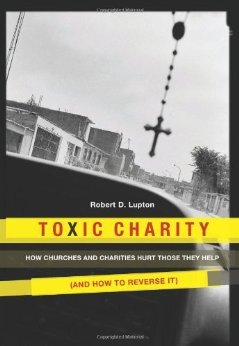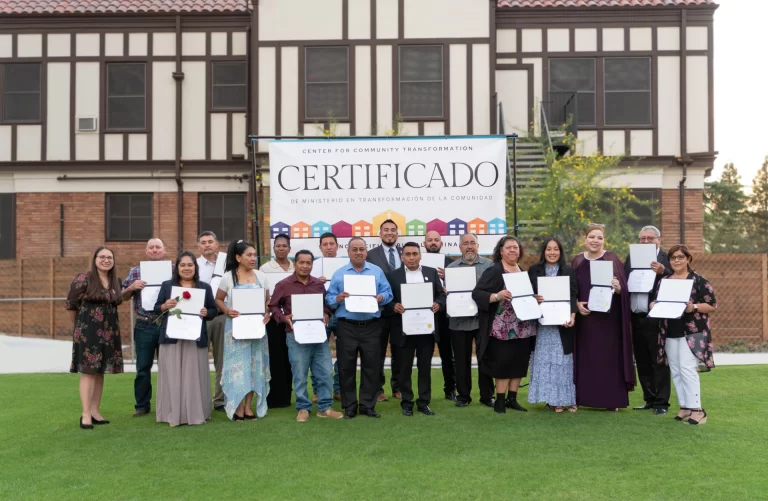
Book Review by Kim Feil
Toxic Charity dives deep into the meaning and purpose of serving the under-resourced people in our communities. The author, Dr. Robert Lupton of FCS Urban Ministries in Atlanta, challenges churches and non-profit organizations in their approach to serving the poor. He offers a different way to view not only the people in those communities, but how we, as follows of Christ, can empower the communities themselves. Lupton specifically tackles the idea that giving out free services and products to under-resourced communities can lead to a crippling dependency. However, teaching these targeted communities to provide their own services and products can often lead to independent and vibrant communities and add a long-term, sustainable approach to the ministries and programs instituted.
Throughout the book many of the ideas and scenarios that Lupton writes about are challenging. Maybe it’s due to the fact that I work in a church, but there was one idea that deeply convicted me. It’s the question of “why does the church serve the poor?” Is it for our own personal gain or do we really truly serve the poor for the sake of the poor? Even as I reflect on our own city of Fresno and the services we offer here for under-resourced communities, I ask, are we truly motivated by serving the best interests of these communities? Or do we hope for a pat on the back because what we are doing looks really good on the certificates of appreciation and the plaques we receive. I believe that as the church, and leaders in our city of Fresno, it is an essential question to ask if we are really truly going to serve and empower the poor.
Much in this book can be overwhelming, and also a bit painful if you are or have been part of a church or organization that focuses mostly on hand outs and free services. So, I am thankful how Lupton decides to end the book. He wraps the content up by discussing starting points for people, churches, and organizations that want to invest in disadvantaged communities. Lupton focuses primarily on four concepts: Select a target neighborhood based off of relationship, be sure to have a visionary leader to lead the charge, focus on a tight geographical area is essential if you expect measurable results, and finally, in order to be effective you must prepare and execute a plan of action.
As I reflect on the concepts in the book there are many things that I want to change about how I view our communities, work in my own neighborhood, and think about development. However, The Oath for Compassionate Service (pg. 128) is the biggest take-away from the book for me. It challenges us to a different way to interact with the poor and gives us, as practitioners, a guideline to how to engage in under resourced communities. The last bullet point of the oath is so powerful it simply says “above all, do no harm.” As I look to engage in my community that is the filter that I will use before I decide to enter in.





